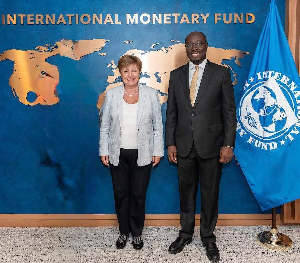Soldiers at the Third Battalion Infantry (3BN) have hinted of breaking rules should their hierarchy not move in to stop a private developer for encroachment at Kotokrom, Sunyani.
The angry soldiers told The Chronicle, on condition of anonymity, that three plots of Military land at Kotokrom in the Brong Ahafo Region were being developed for a gas filling station.
The soldiers, on a condition, withheld the name of their senior officer who had sold the land to the developer whose name they mentioned as Joseph Konadu, also known as JOEKUNA, for the construction of the gas filling station.Some building materials deposited on the military land sold to the private developer
They believed the land was sold at a very high price.
The peeved soldiers said they would be forced to break their oath to expose the senior officer who sold out the state property if the Military top hierarchy delayed in ordering for work to stop on the Kotokrom Military land.
They reminded their hierarchy of the oath they had sworn to defend the Republic of Ghana even at the peril of their lives, therefore, their readiness to protect the Military land.
A portion of the Kotokrom military land cleared for the gas filling station
Furthermore, they called for swift investigation into the sale of the land, saying they could not understand why somebody would use his power to sell out a state property with impunity.
Should the Kotokrom land be allowed for the gas filling station, they explained that every senior military officer would chart a similar course and that would dent the hard-won reputation and discipline the Ghana Armed Forces (GAF) is noted for.
The Kotokrom land for the siting of the gas filling station is close to the barracks.
In view of this, they said they would be forced to resist JOEKUNA to ensure that nobody took the GAF for granted or very soon, they would lose all their properties, which are state owned, to private individuals.
General News of Tuesday, 7 February 2017
Source: The Chronicle













